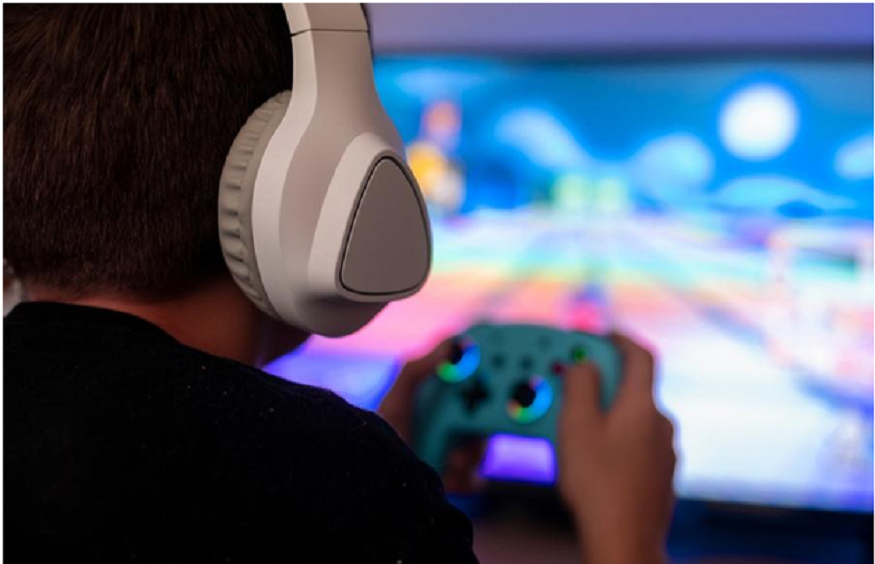In today’s digital world, gaming is a favorite pastime for people of all ages. With the accessibility of various gaming platforms and the appeal of immersive virtual worlds, it’s easy to spend hours engrossed in gameplay. While gaming offers entertainment and can even enhance certain skills, developing healthy gaming habits is necessary to maintain physical, mental, and emotional well-being.
Balancing gaming with other aspects of life ensures that it remains a positive rather than a detrimental activity. Whether playing on a console, mobile device, or a powerful prebuilt gaming PC, understanding how to integrate gaming responsibly into daily routines is essential. This article explores healthy gaming practices across different age groups and provides practical tips to help gamers and their families stay on track.
General Principles of Healthy Gaming
Developing healthy gaming habits starts with understanding how gaming fits into your lifestyle. Regardless of age, some fundamental practices can help ensure that gaming remains a positive activity:
- Balance Gaming with Other Activities: Allocate time for physical exercise, social interactions, work or school responsibilities, and other hobbies.
- Set Time Limits: Establish specific times for gaming and stick to them to prevent excessive play.
- Create a Comfortable Gaming Environment: Use ergonomic chairs, maintain good posture, and ensure proper lighting to reduce physical strain.
- Regular Breaks: Stand up, stretch, and rest your eyes every hour to avoid fatigue.
- Stay Mindful of Content: Choose games that are appropriate for your age and be aware of the impact of game content on your mood and behavior.
For example, understanding the differences between curved vs. flat monitor gaming can enhance your gaming experience. A curved monitor might offer a more immersive experience, while a flat monitor could be better for competitive gaming due to less distortion at the edges. Choosing the right equipment is just one way that the right choices can contribute to both enjoyment and comfort.
Healthy Gaming Habits for Children (Ages 5-12)
For younger gamers, parental guidance plays a significant role in establishing healthy habits:
- Parental Involvement: Parents should select age-appropriate games and play together with their children to monitor content and encourage family bonding.
- Set Clear Time Limits: Establish, communicate, and enforce rules about how much time can be spent gaming each day.
- Encourage Diverse Activities: To provide a well-rounded experience, promote participation in outdoor play, sports, reading, and other hobbies.
- Use Shared Spaces: Encourage gaming in common areas to monitor activity and ensure a healthy gaming environment.
Healthy Gaming Habits for Pre-teens and Teenagers (Ages 10-19)
As they age, children who reach pre- and teen years can start taking more responsibility for their gaming habits. Understanding technological advancements can also empower them. For instance, explaining what HDR gaming is can help them make informed decisions about game settings and equipment, enhancing their gaming experience responsibly.
- Promote Self-Regulation: Teach teens to manage their own gaming time and understand its impact on other areas of life.
- Discuss Online Safety: Have open conversations about online interactions, including privacy and respectful communication.
- Be Mindful of Game Content: Encourage critical thinking about the games they play, including themes and messages.

Source: Studio Nut/Shutterstock.com
Healthy Gaming Habits for Young Adults (Ages 20-30)
As young adults gain more independence, self-regulation becomes essential:
- Set Personal Boundaries: Determine how gaming fits into your life alongside work, studies, and social relationships.
- Monitor Gaming Time: Use apps or built-in console features to track how much time you spend gaming and adjust if necessary.
- Prioritize Health and Well-Being: Ensure that gaming does not interfere with sleep, exercise, or nutrition.
- Stay Socially Connected: Balance online gaming friendships with real-life interactions.
For more insights on balancing gaming with other responsibilities, you might find helpful resources from organizations like the American Psychological Association on the impact of gaming on mental health.
Healthy Gaming Habits for Adults (Ages 30+)
Adults often juggle work, family, and personal time, making healthy gaming habits crucial:
- Integrate Gaming into a Busy Schedule: Plan gaming sessions during free time without sacrificing important obligations.
- Use Gaming as a Social Tool: Play games with friends or family members to strengthen relationships.
- Be Mindful of Physical Health: Pay attention to ergonomics to prevent strain, and take breaks to reduce the risk of repetitive stress injuries.
- Stay Informed: Keep up with the latest research on gaming and health to make informed choices.
Gaming can also offer cognitive benefits for older adults. According to the National Institute on Aging (NIA), playing video games for 30-45 minutes daily over four weeks improved recognition memory in adults aged 60-80. This shows how certain types of video games can improve mental agility and memory in older populations.
Recognizing Signs of Problematic Gaming Behavior
Understanding whether gaming has become a problem for yourself or your children is an important step toward developing healthier habits. Excessive gaming can interfere with daily responsibilities, relationships, and overall well-being. Self-evaluation involves honestly assessing how gaming affects various aspects of life, including physical health, emotional state, and social interactions.
Some common signs that may indicate problematic gaming behavior include:
- Preoccupation with Gaming: Constantly thinking about gaming when not playing and feeling anxious or irritable when unable to play.
- Neglecting Responsibilities: Ignoring work, school, or household duties in favor of gaming.
- Loss of Interest in Other Activities: Reduced participation in hobbies, sports, or social events that were previously enjoyed.
- Lying About Gaming Time: Hiding the amount of time spent gaming from family or friends.
- Continued Gaming Despite Problems: Persisting in excessive gaming even when it causes conflicts with loved ones or leads to negative consequences.
- Using Gaming to Escape: Relying on gaming to relieve negative moods such as guilt, anxiety, or depression.
- Withdrawal Symptoms: Experiencing restlessness or irritability when unable to play.
If you recognize these signs in yourself or your children, it may be time to reevaluate your gaming habits. Consider setting stricter time limits, seeking alternative activities to replace gaming time, or consulting a professional for guidance. Open communication within the family about gaming expectations and concerns can also help address potential issues before they escalate.
Source: Gorodenkoff/Shutterstock.com
Level Up Your Gaming Experience Responsibly
Developing healthy gaming habits is essential for enjoying all the benefits that gaming has to offer without the drawbacks. By balancing gaming with other important aspects of life, you can ensure that it remains a positive and enriching activity at any age. Take the time to assess your gaming routines and make the necessary changes today. After all, the best gaming experience is one that contributes to your overall well-being and happiness.

